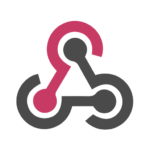Integration Webhook and Iron.io


Webhooks and Iron.io Integration: What You Should Know
Developers like you deal with webhooks all the time. Apps send these signals — or "custom callbacks" — to unique URLs when specific events happen. Think of a webhook like a doorbell that alerts you when someone is outside your home. Or an SMS notification that makes your phone vibrate.
Webhooks notify you in all kinds of scenarios:
- When a customer pays you on Stripe
- When someone signs up to your mailing list via Mailchimp
- When Salesforce adds a new lead
So far, so simple. But webhooks are a complicated beast, and developers face challenges all the time. (Webhooks can be seriously stressful!) You probably add endpoints to apps that handle requests and responses from webhooks, but this can cause application downtime, queues, and resource spikes.
What if there was a more simple way to manage webhooks?
Iron.io lets you create workers that take care of tasks in the background whenever an event happens in an app that supports webhooks. You can automate the entire process. Here's everything you need to know about webhooks and Iron.io integration.
Table of Contents
Achieve Cloud Elasticity with Iron
Speak to us to find how you can achieve cloud elasticity with a serverless messaging queue and background task solution with free handheld support.

4 Common Webhooks Problems
Integrating Webhooks and Iron.io provides you with multiple benefits because so many things can go wrong with webhooks:
1. Downtime
Webhooks won't work when apps are down or undergoing maintenance. If webhooks try to alert URLs after specific events, the request will fail. You might never receive a webhook notification.
2. Long Queues
If you've set up multiple webhooks for multiple apps, these apps will queue webhook requests, resulting in timeouts. (It's like a traffic jam on I-80). These webhooks might contain important information, but it could be hours (or days) by the time you receive it.
3. Customer Experience Problems
Downtime and long queues could harm a customer's experience. It could be hours before you respond to a customer who paid you on PayPal, for example, because you didn't receive the notification from a webhook.
4. Resource Spikes
Even if you process multiple webhooks on multiple apps at once, your system could experience resource spikes like excessive CPU and MEM usage.
Recommended reading: Using IronWorker to Power Custom Service Integrations
Iron.io Serverless Tools
Speak to us to learn how IronWorker and IronMQ are essential products for your application to become cloud elastic.
The Benefits of Webhooks and Iron.io Integration
Iron.io has two solutions for managing webhooks:
- IronMQ — a scalable hosted message queue that optimizes data management and event flow within applications.
- IronWorker — a container-based distributed tool that isolates task dependencies and code for on-demand processing. IronWorker lets you power tasks in parallel at scale.
How Webhooks Integrates With IronMQ
IronMQ is HTTP-based, making it a brilliant choice for receiving webhooks. When webhooks send requests, IronMQ pushes these webhooks to an external HTTP endpoint, another queue, or IronWorker. This process reduces wait times, downtime, and resource spikes.
How Webhooks Integrates with IronWorker
IronWorker processes webhooks in the background, so they run independently, which reduces resources. Users can auto-scale webhooks and process multiple webhooks on multiple apps concurrently.
Using IronMQ and IronWorker lets you handle webhooks more efficiently. These tools process webhooks automatically (or at a specific time, if you prefer) outside of an application's life cycle, freeing up app resources and reducing excessive loads. This process improves the customer experience.
Recommended reading: How to Use IronWorker Webhooks

Final Word
Webhooks are becoming increasingly common, notifying developers after specific events take place in apps. But managing multiple webhooks on different apps can be problematic, resulting in downtime, queues, resource spikes, and poor customer experiences. IronMQ and IronWorker solve these problems by processing webhooks outside an app's life cycle. As a result, you can improve webhook management significantly.
Unlock the Cloud with Iron.io
Streamline webhooks management with IronWorker and IronMQ. Get a free 14-day trial. It requires no credit card.
